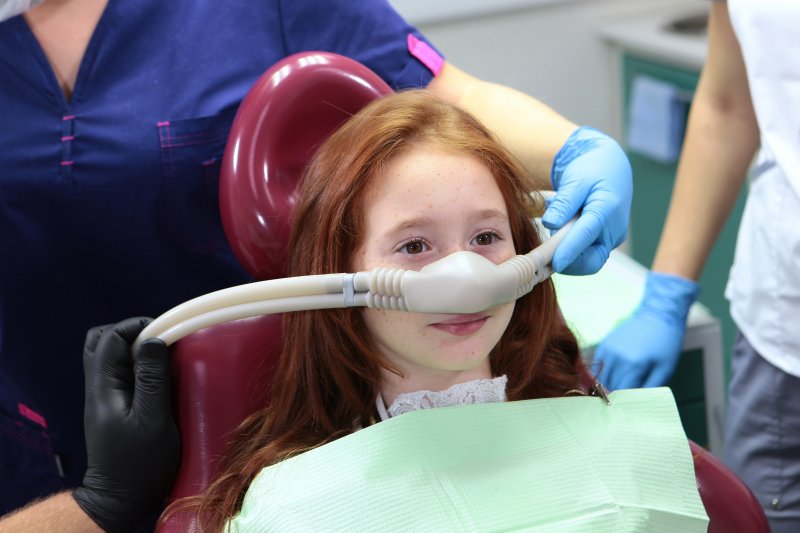
It’s natural for parents to have questions about sedation dentistry. When recommended by your child’s pediatric dentist, you may wonder about its safety, effectiveness, and possible risks. Your responsibility is to keep your child protected as best as possible, so before signing off on any kind of dental sedation, here are the answers to 3 of the most common (and burning) questions asked by parents like you.
Question #1: Which Type of Dental Sedation is Right for My Child?
Before any kind of dental sedation can be administered, it will be necessary for you and your child to meet with their pediatric dentist to discuss their overall health. This information will be essential when determining whether nitrous oxide, local anesthesia, or hospital dentistry is best.
While nitrous oxide is the gentlest form and is suitable for those who experience mild to moderate dental anxiety, it may not be enough if your child needs multiple procedures in a single visit. This type of situation or even just one complex dental treatment may require local anesthesia or hospital dentistry.
Local anesthesia numbs various areas of the mouth for a more comfortable and easy experience, while hospital dentistry occurs in a nearby facility with the help of an anesthesiologist.
Question #2: Are There Side Effects Related to Sedation?
With nitrous oxide, your child will unlikely experience any side effects. Once the gas is turned off, the mask will be removed from their nose, allowing them to breathe pure oxygen for a few minutes. After that time, they should be free to resume normal activity.
If it’s local anesthesia or hospital dentistry they require, they might develop dry mouth, nausea, temporary amnesia, headache, and grogginess. This is why it’s important that you remain with your child after they return home to monitor them as the medication and/or numbing agent wears off.
Question #3: Is Sedation Dentistry Safe?
As long as the method of sedation provided is administered by a licensed and expertly trained medical professional, it is safe for your child. Of course, the pediatric dentist will first need to make sure there are no existing conditions or current medications that could negatively interact with sedation. Some respiratory illnesses or medicines can reduce the sedative’s effectiveness; however, all of this will be addressed during a scheduled appointment.
Asking questions about sedation dentistry is the only way to get the answers you need to feel confident and comfortable. The more you know, the better your chances will be to properly prepare your child for their upcoming appointment.
About the Author
Dr. Marie Tremblay’s 20+ years of experience in pediatric dentistry makes her a family favorite at Treehouse Pediatric Dentistry. Delivering care to patients at our office for more than 15 years, she uses her education from the University of Montreal dental school and professional experience to help children develop healthy smiles for life. Offering sedation dentistry to reduce anxiety and calm nerves, she and the team at Treehouse Pediatric Dentistry want to create positive patient experiences, so visit our website or call (413) 779-3136 to find out if one of our available methods of sedation is right for your child.
